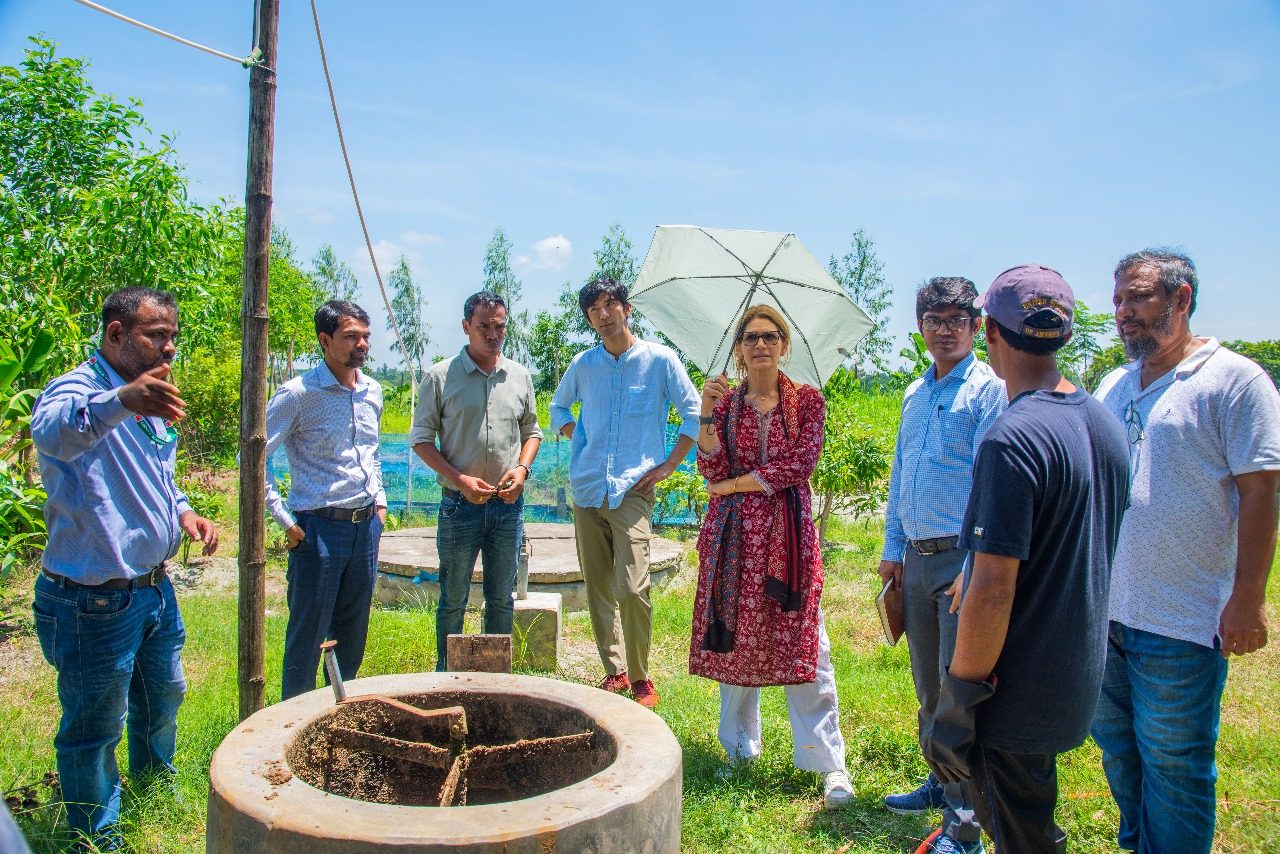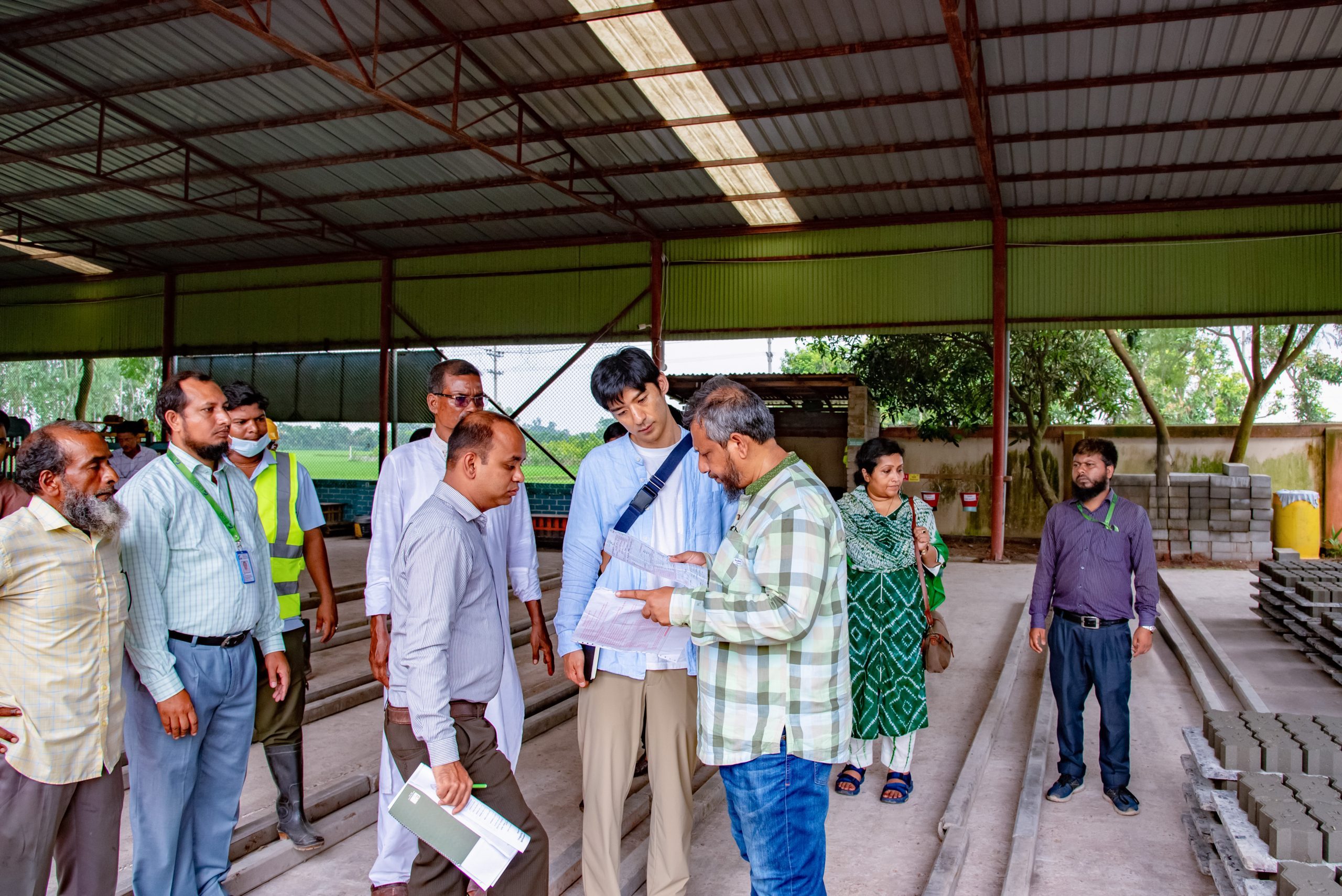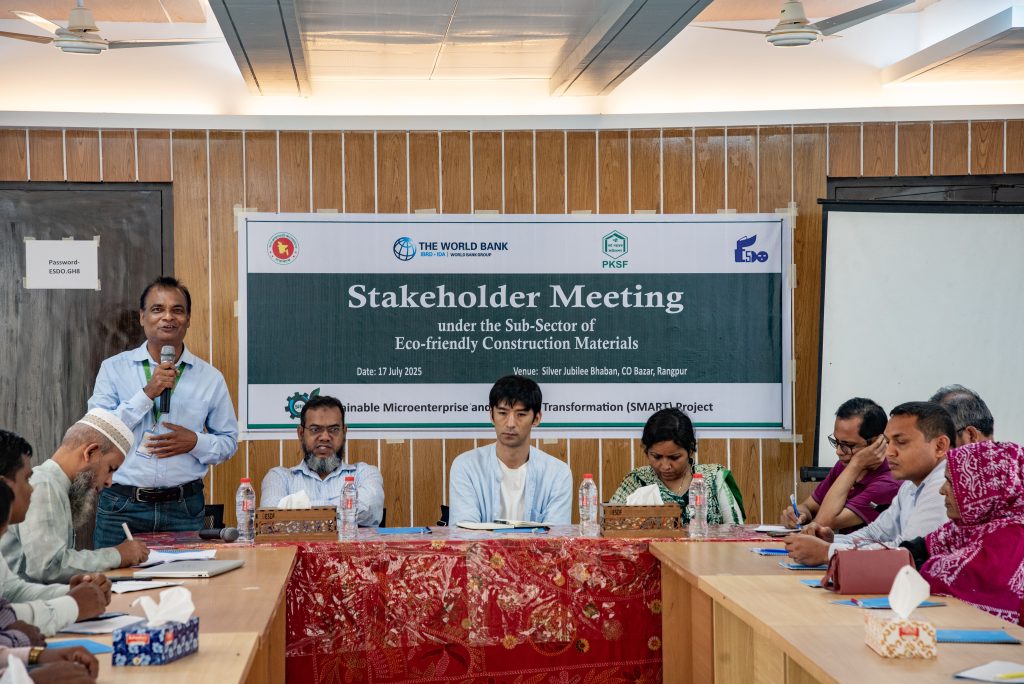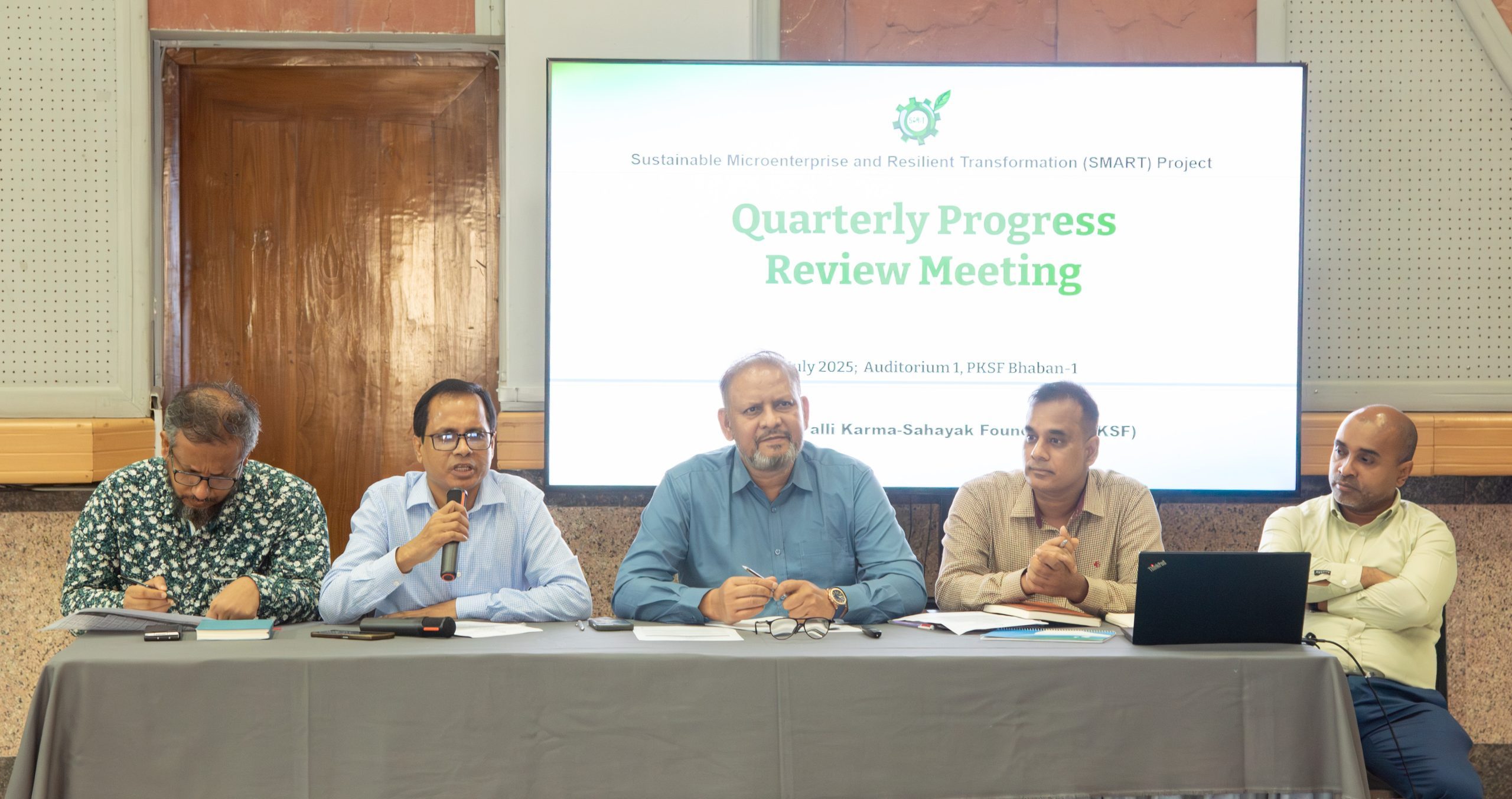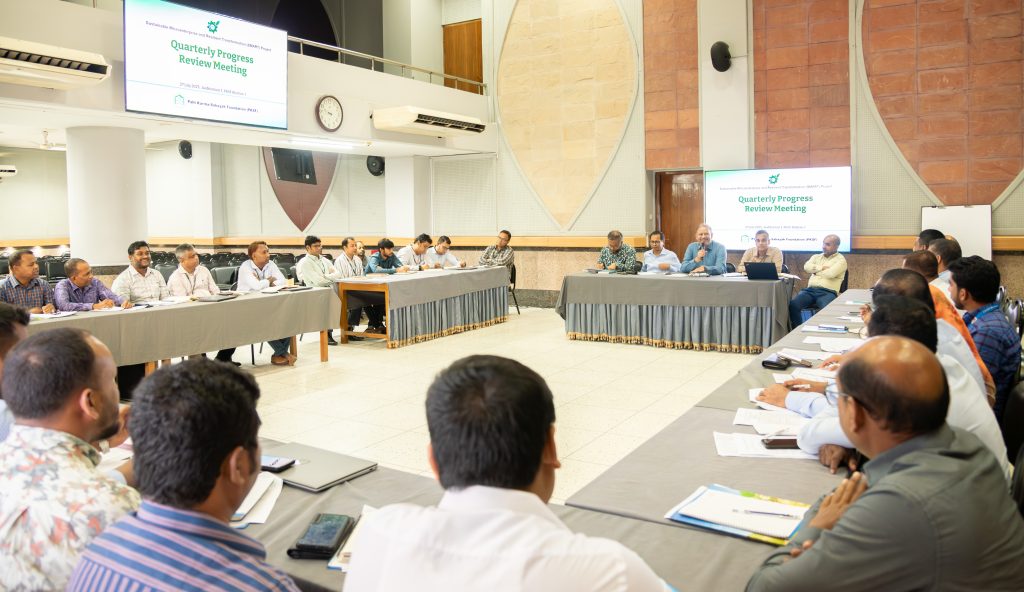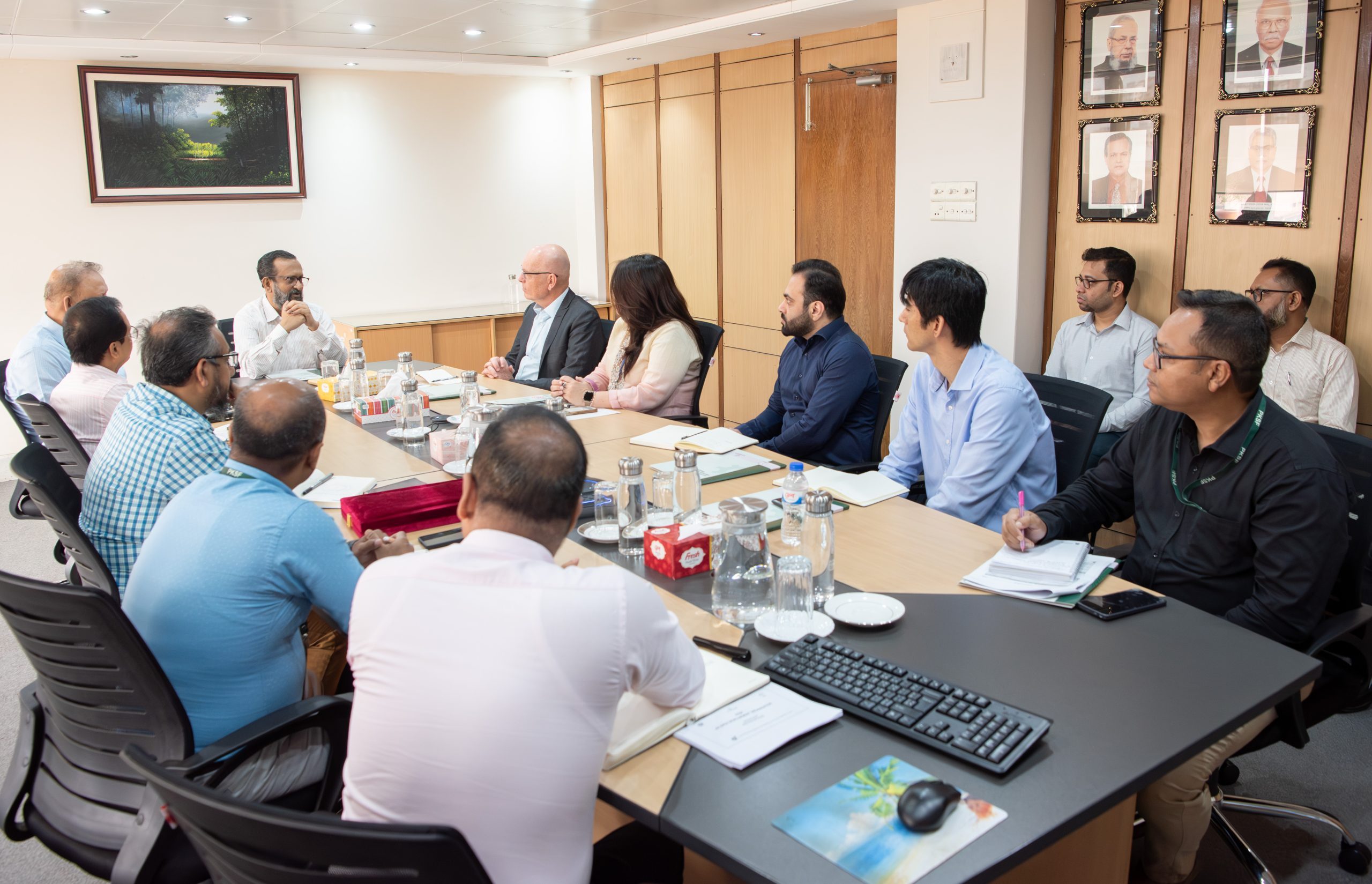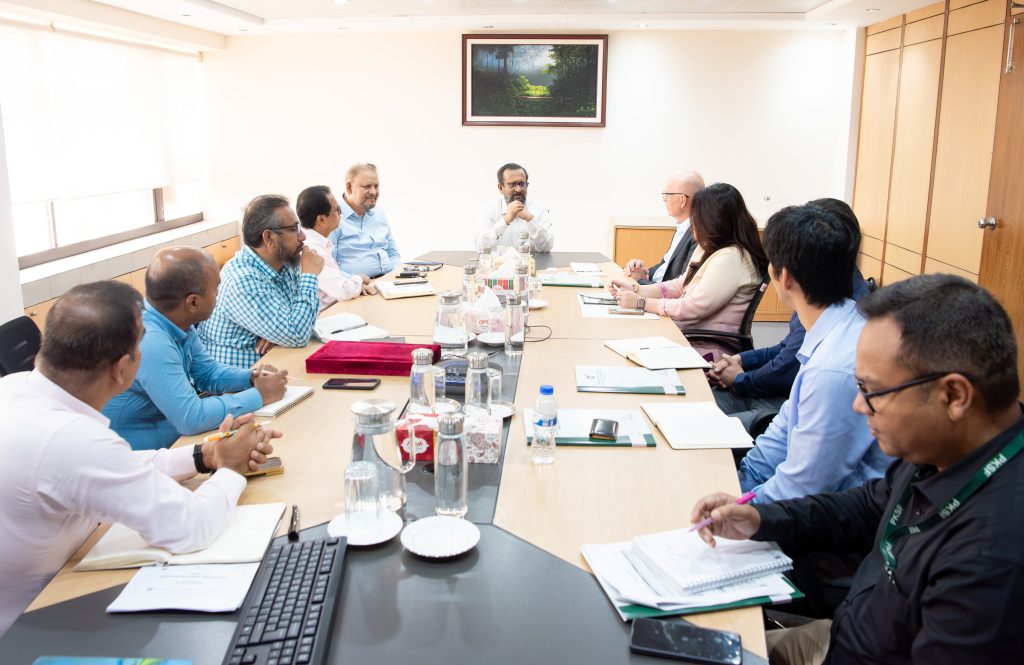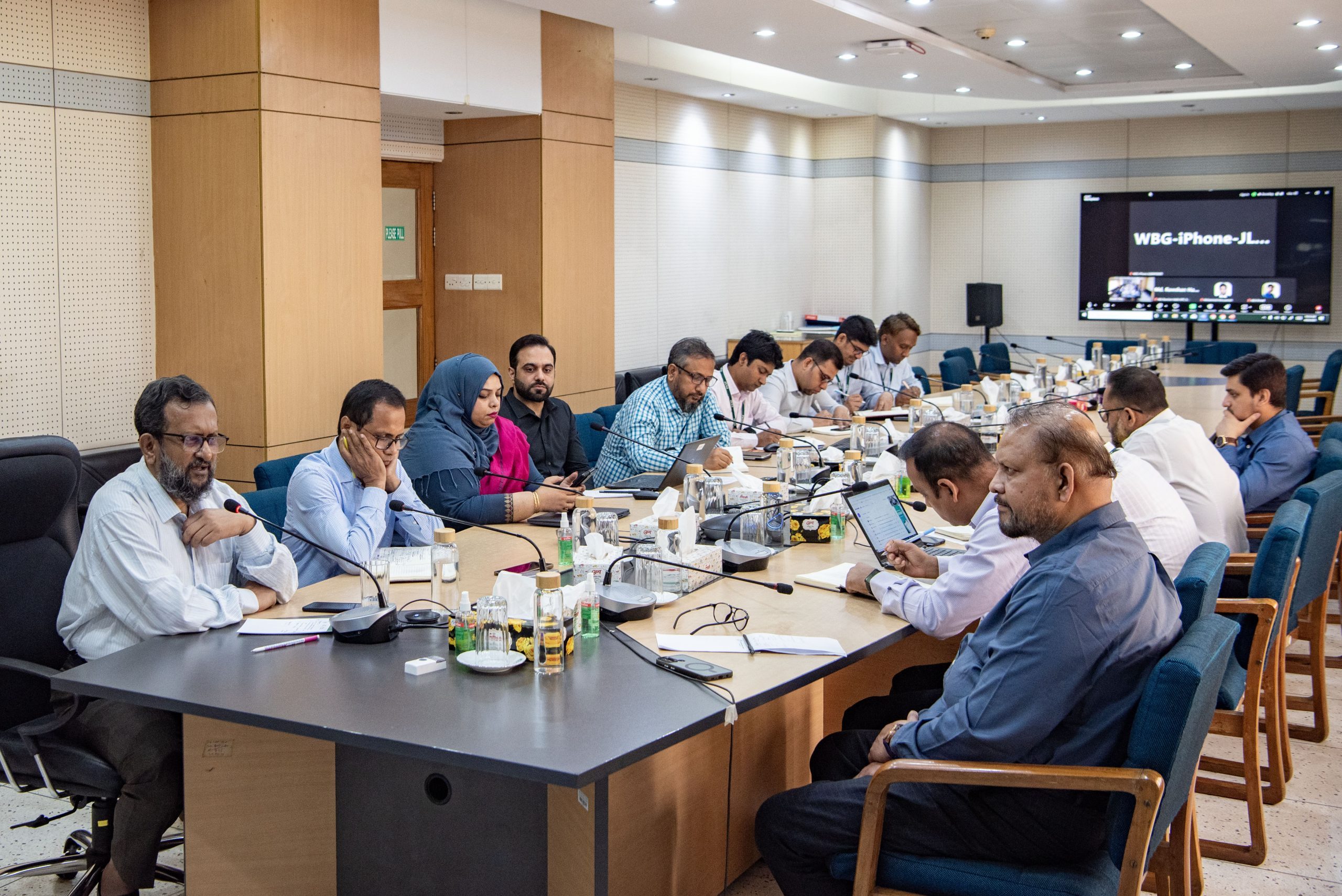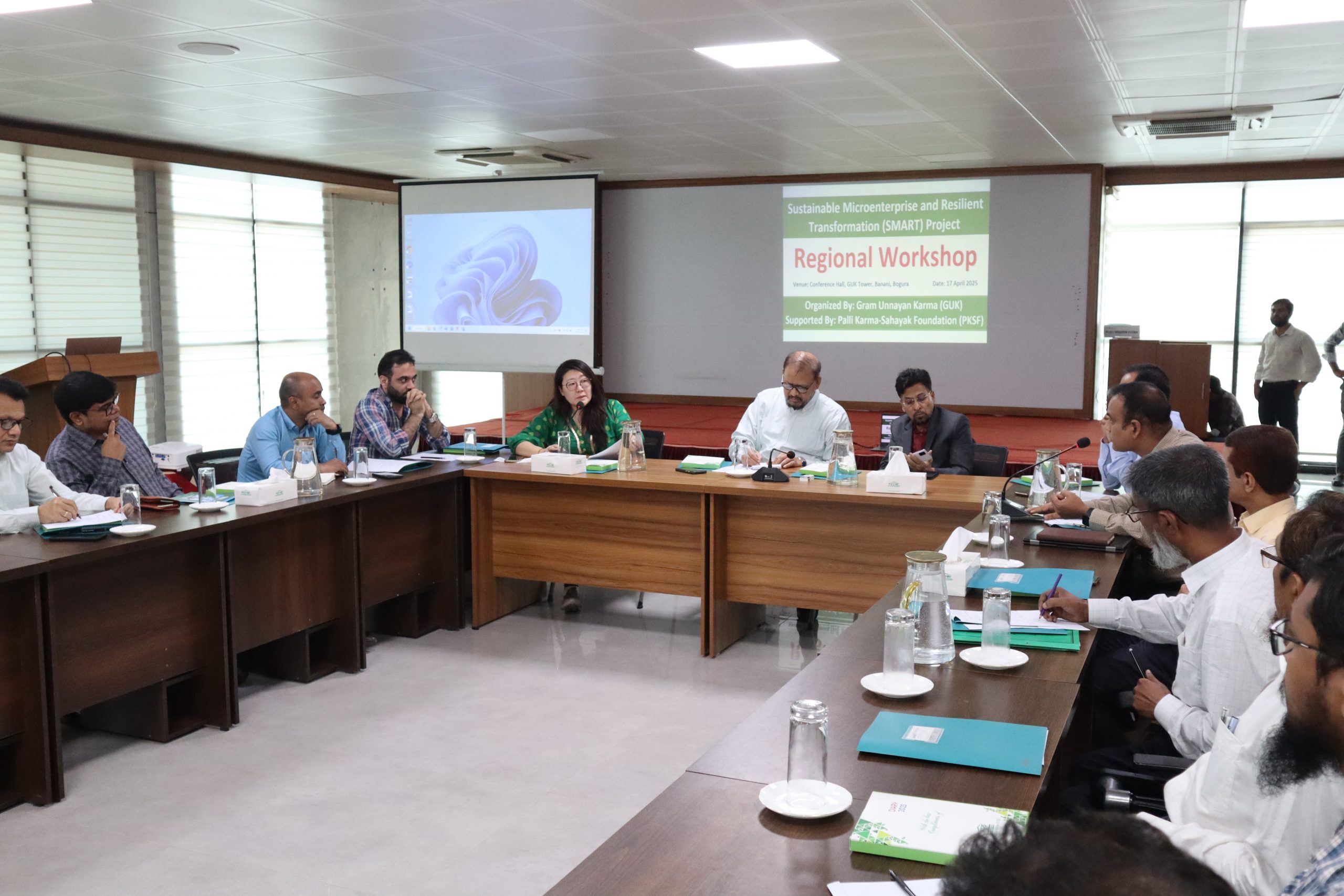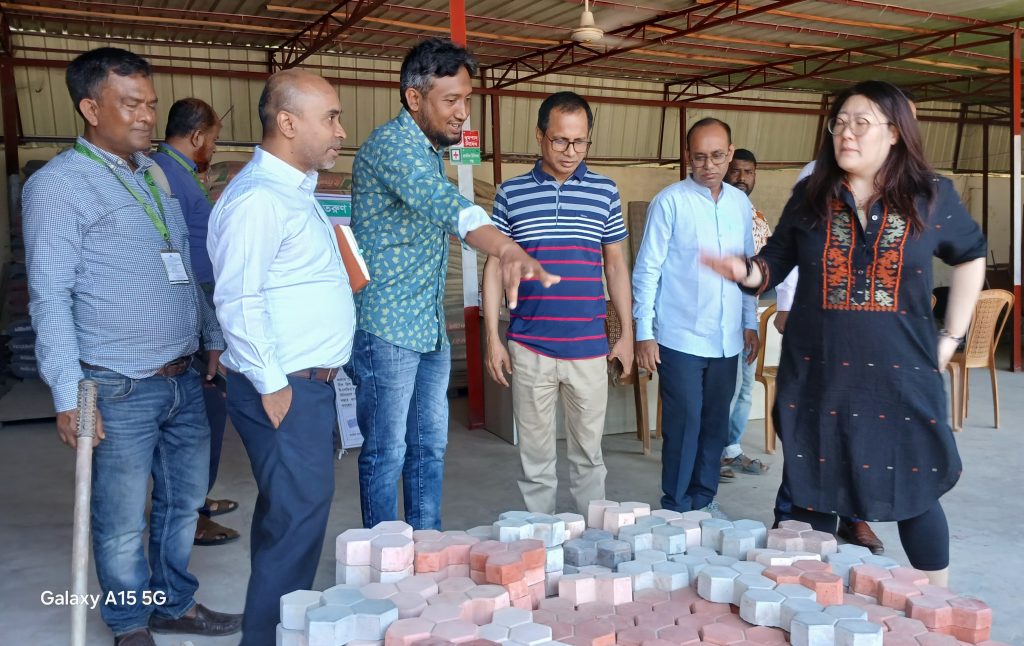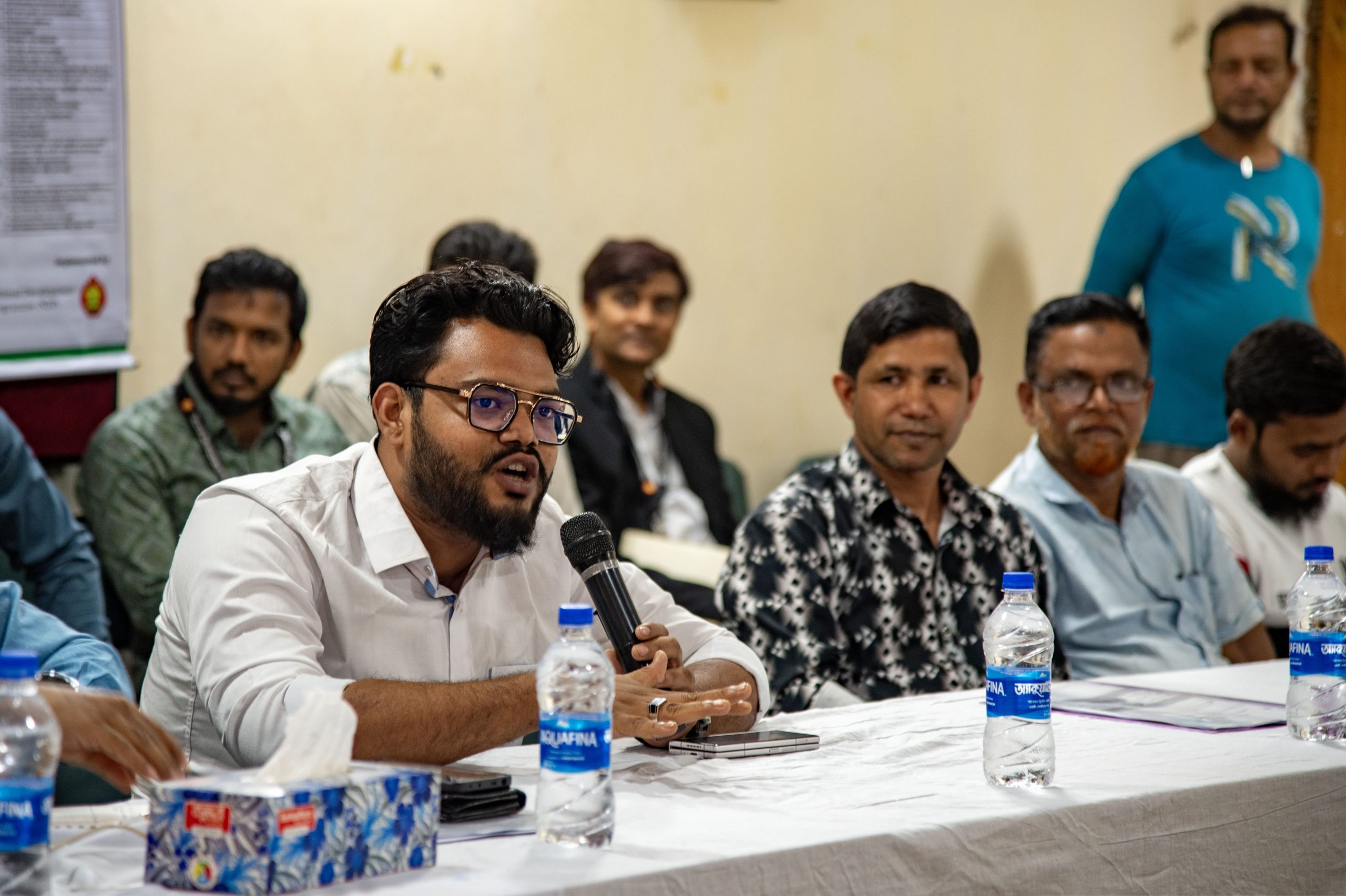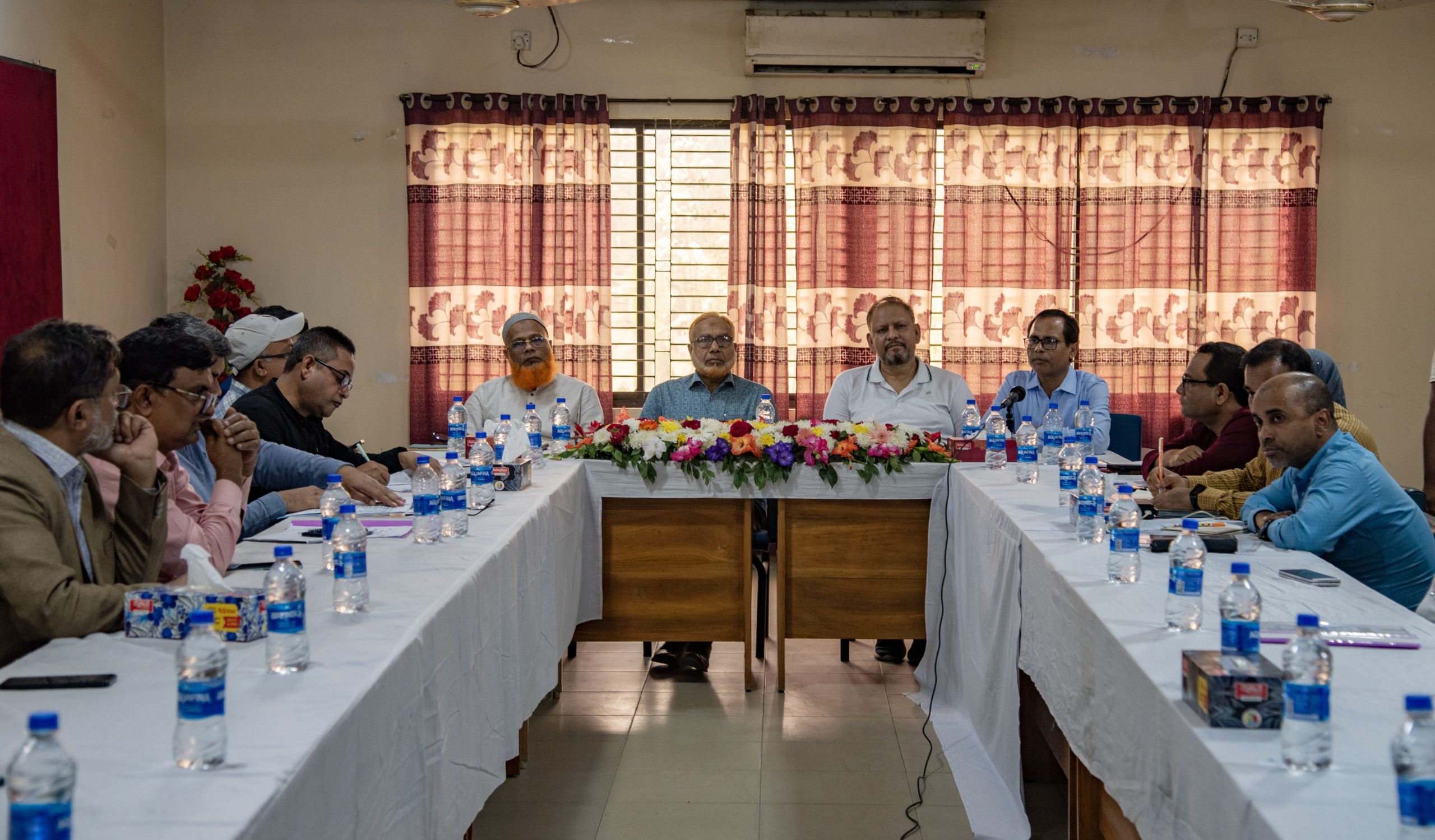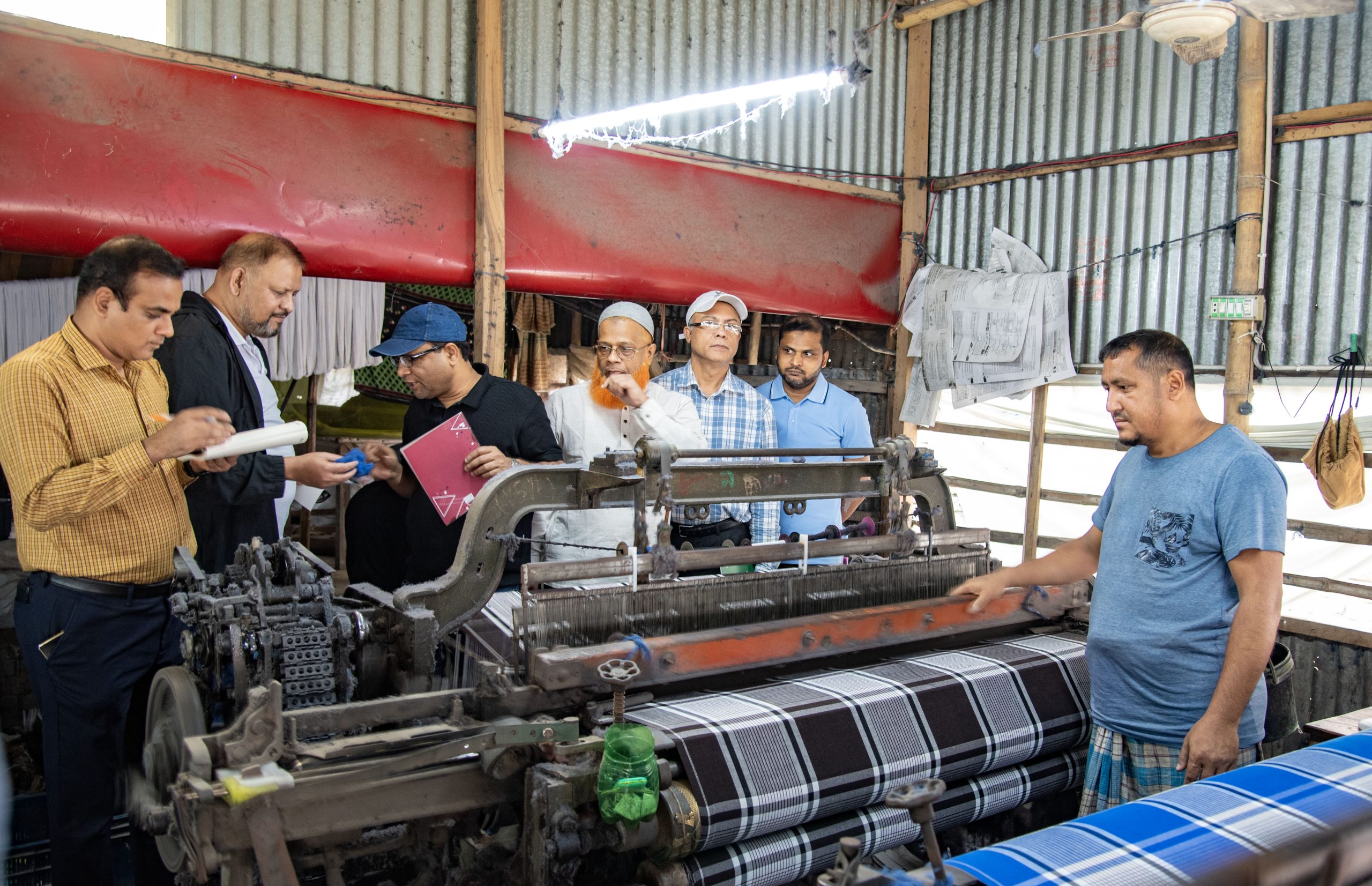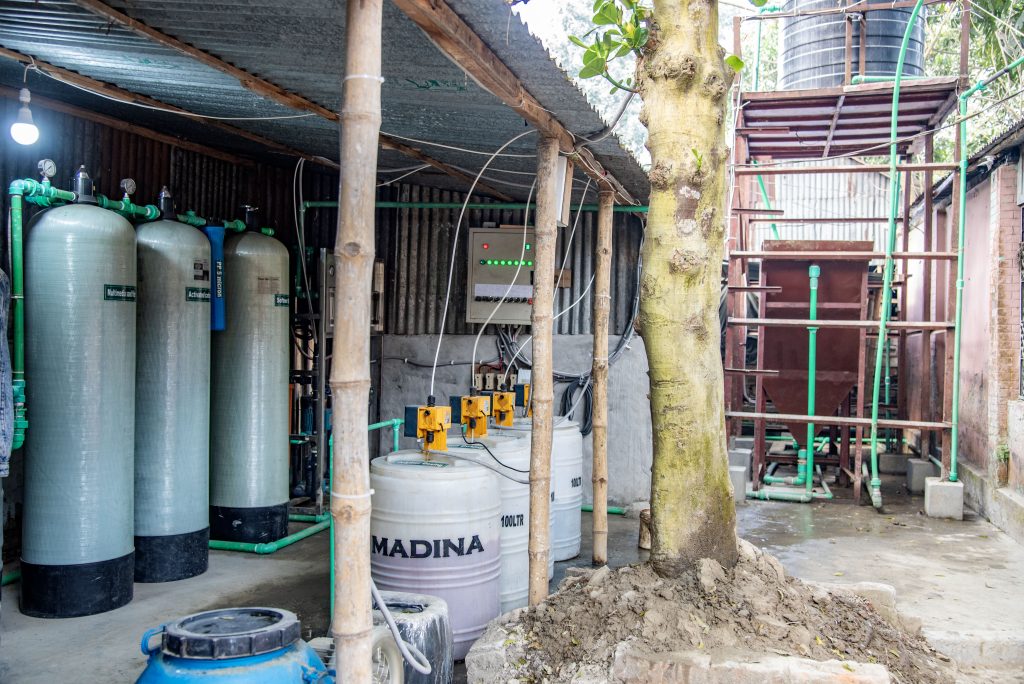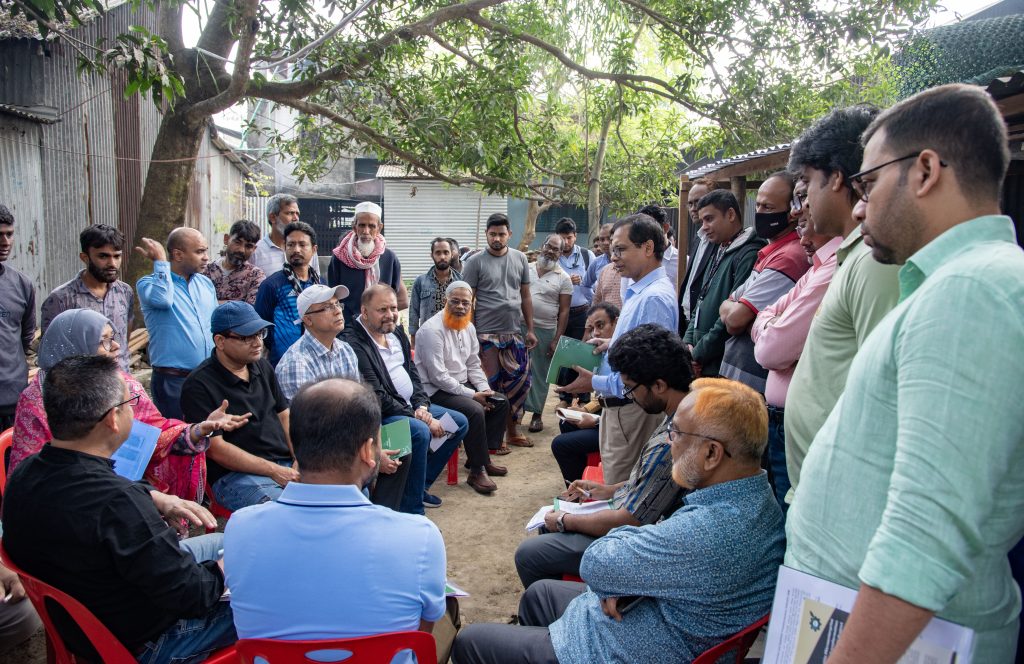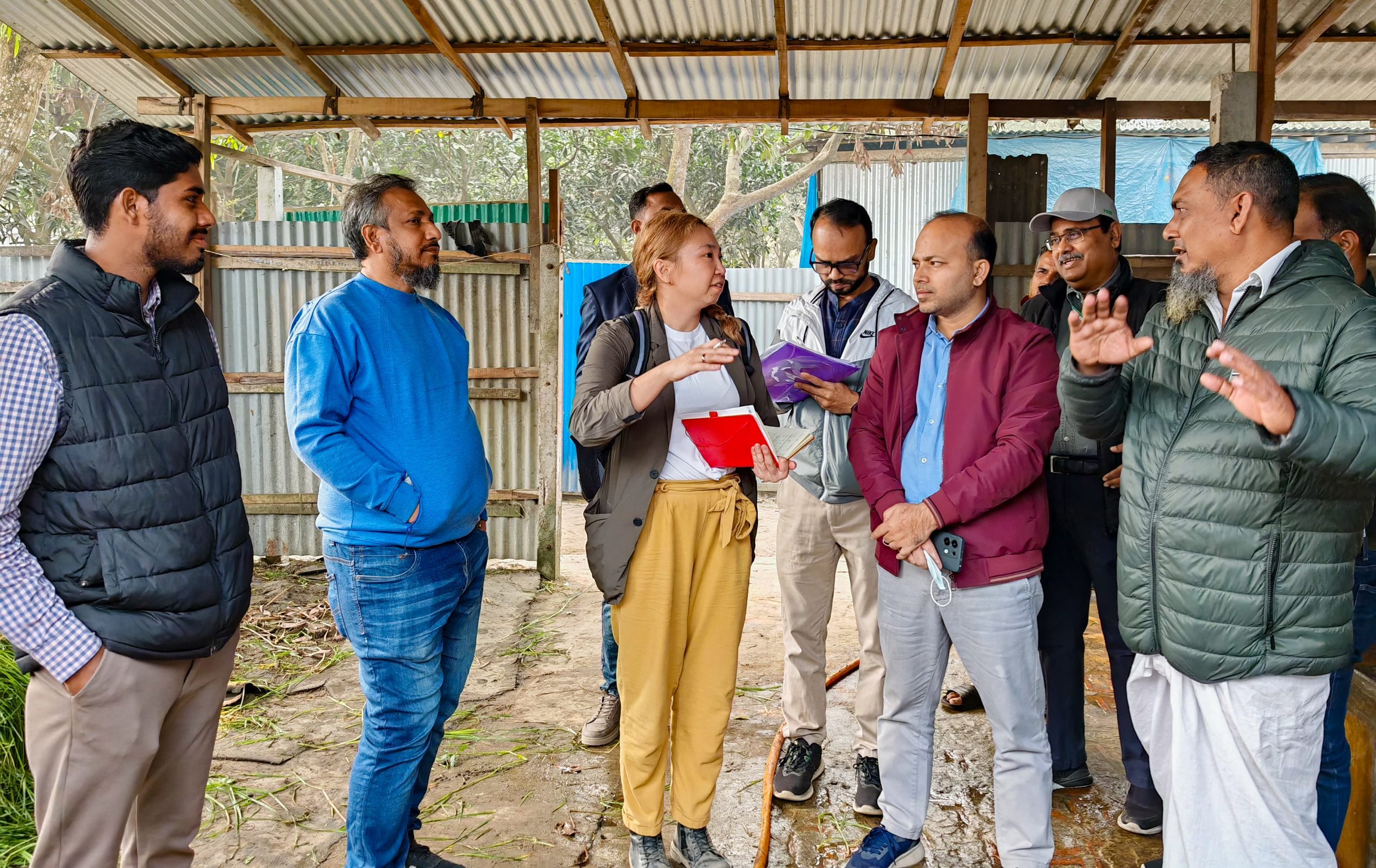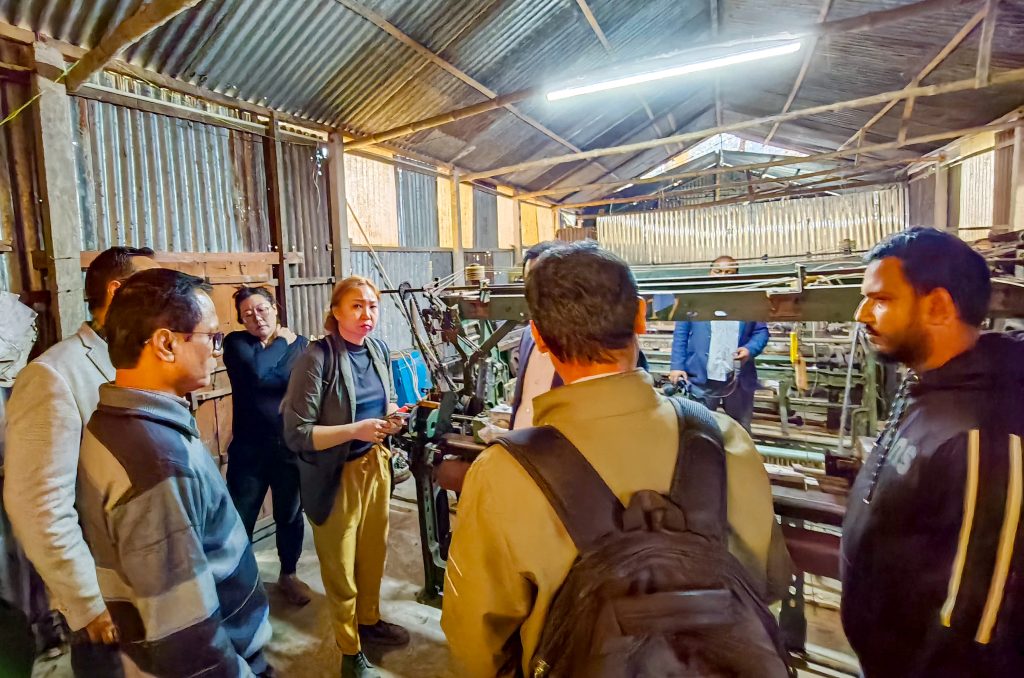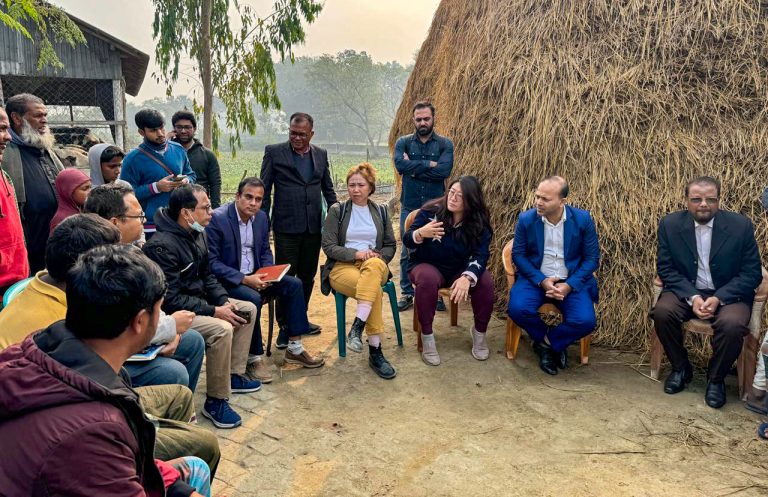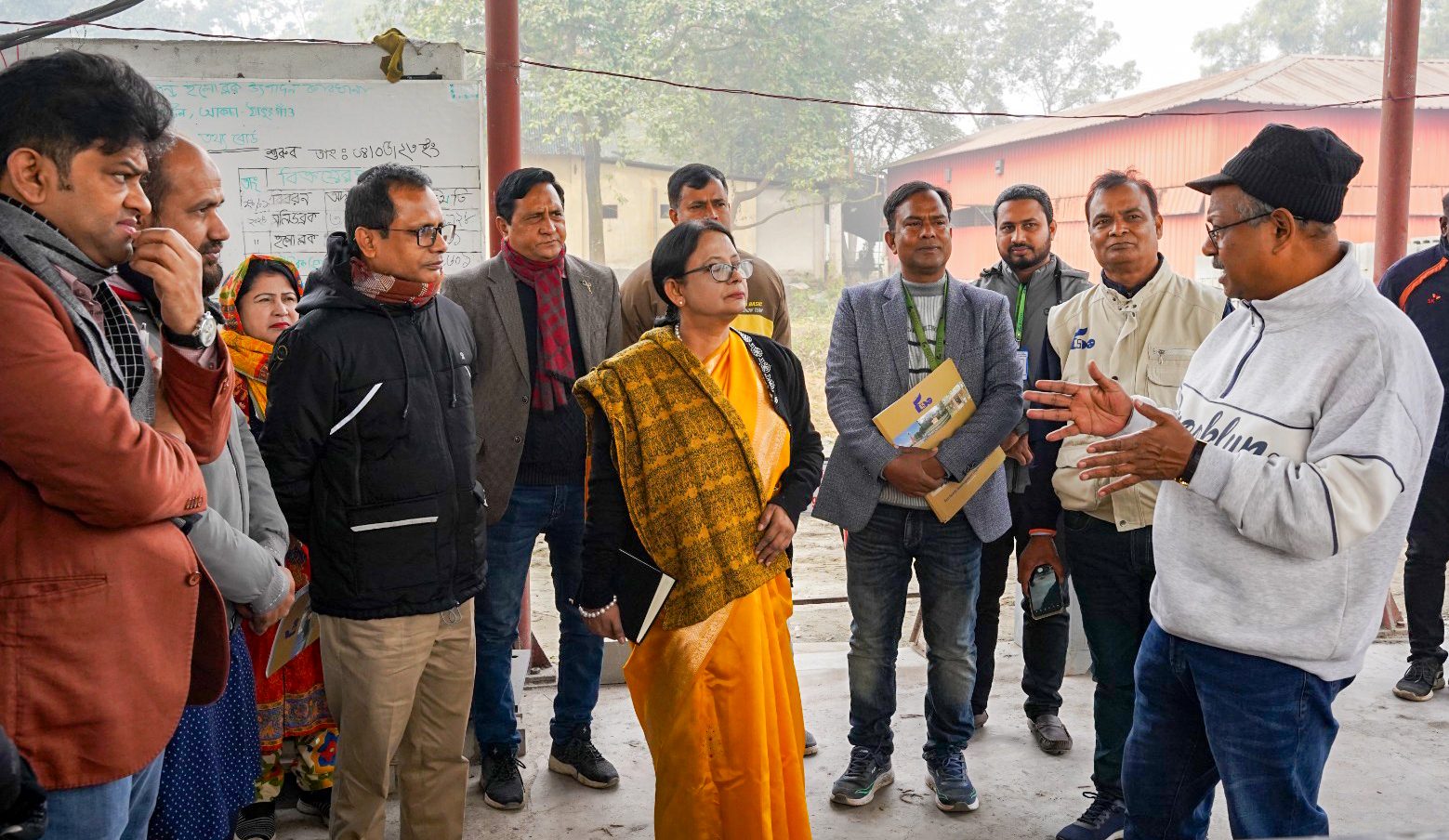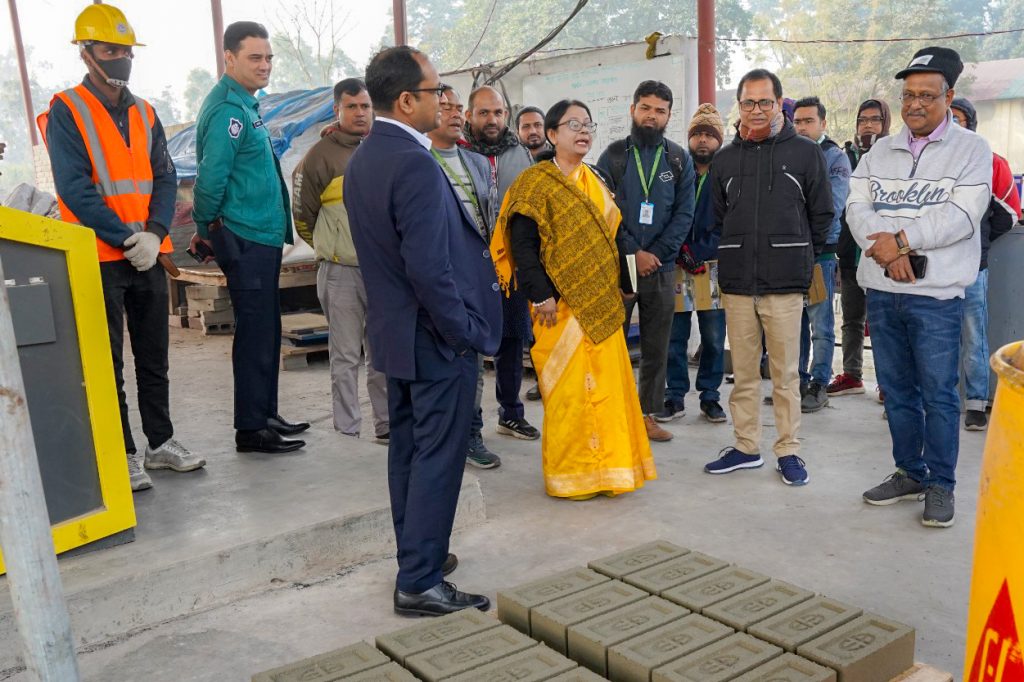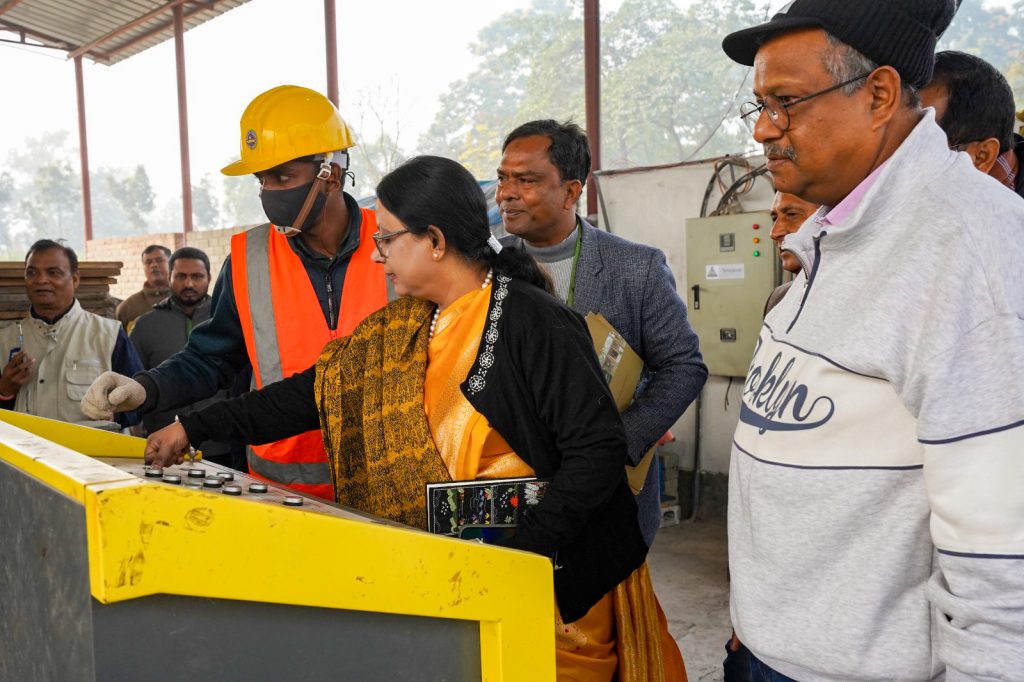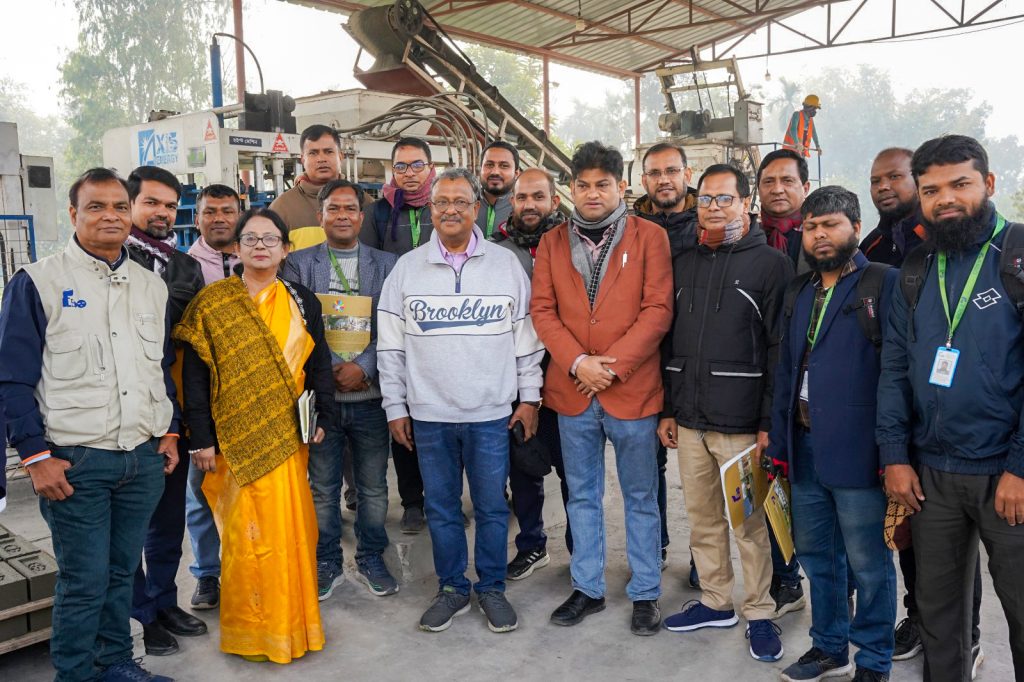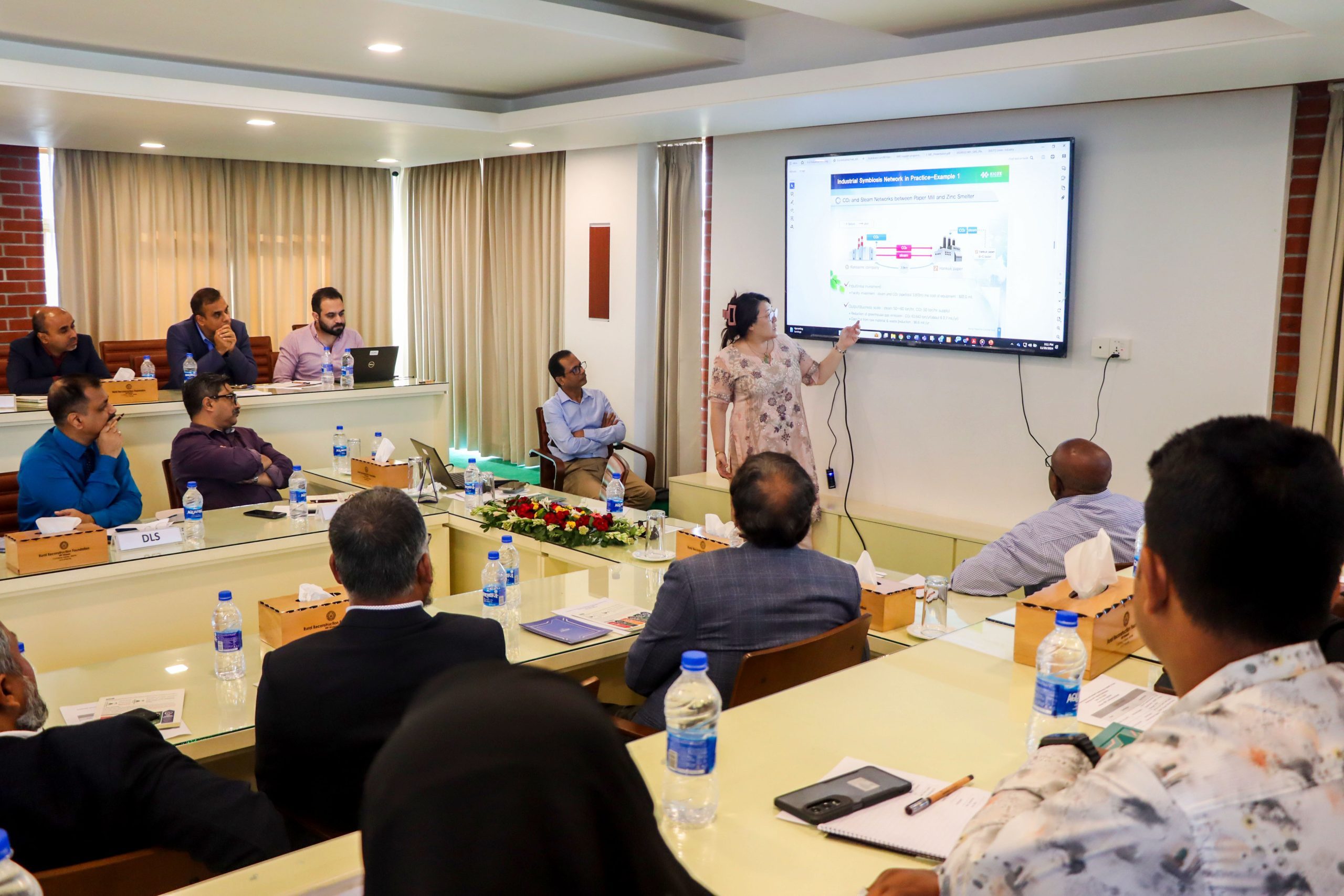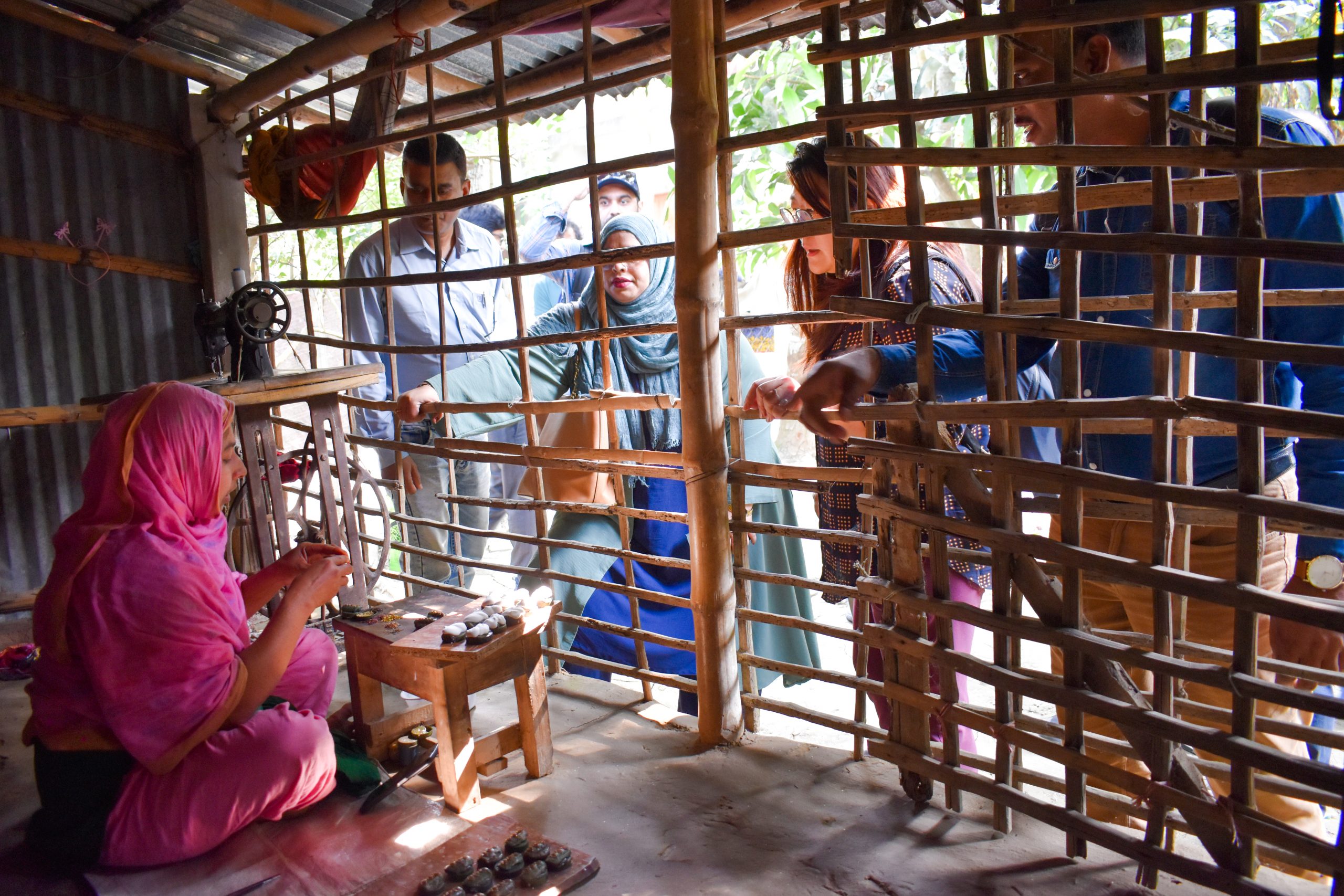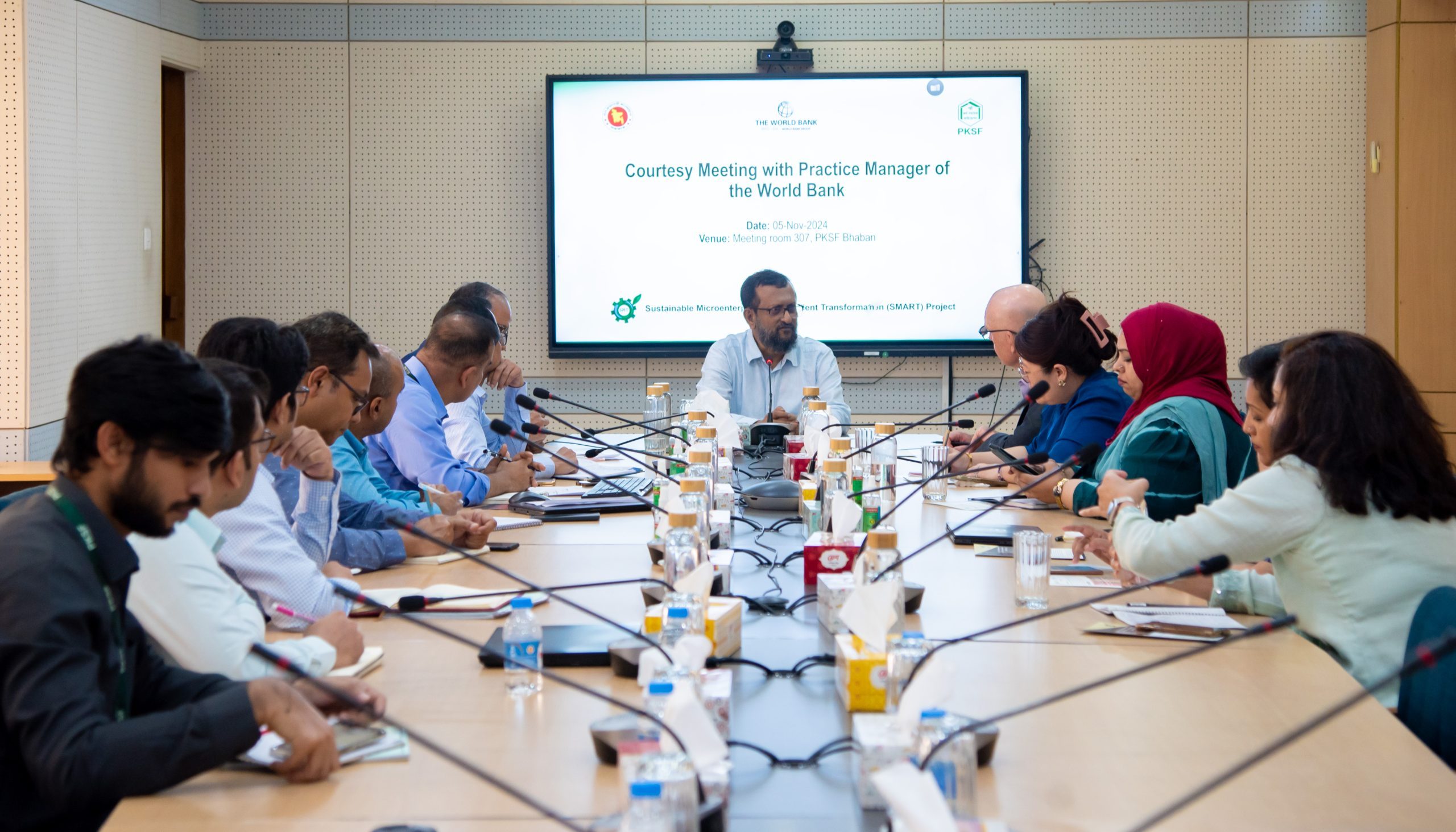World Bank lauds SMART project’s innovative approach to green growth
Ann Jeannette Glauber, Practice Manager for Environment and Natural Resources at the World Bank’s East Asia and the Pacific Region, lauded the SMART project for its ‘innovative’ initiatives in promoting Resource-Efficient and Cleaner Production (RECP) practices in microenterprises (MEs). Her comments came during a community consultation meeting on 26 August 2025, in Munshiganj, following a visit to several microenterprises in the district’s Louhajong upazila.
Resource Integration Centre (RIC) organized the meeting under ‘Promoting Resilient Green Growth in Dairy Sub-sector’ sub-project of the SMART project. It brought together delegates from the World Bank, PKSF, RIC, and the Upazila Livestock Officer to engage directly with 11 local micro-entrepreneurs. During the discussion, the entrepreneurs expressed satisfaction with the financial and technical support they are receiving. To them, RECP is a new concept which helps conserve the environment as well as ensure optimum use of thier resources. They also expressed their desire for continued assistance to expand their businesses and diversify their products.
The World Bank delegates, including SMART project Task Team Leader Keisuke Iyadomi and Senior Environmental Specialist Kirtan Chandra Sahoo, Senior Private Sector Specialist Hosna Ferdous Sumi, Environmental Specialist Bushra Nishat, visited cattle-rearing microenterprises to observe the RECP practices and its benefits firsthand. Gokul Chandra Biswas, Project Coordinator of the SMART project, AKM Zahirul Haqeu, Deputy Project Coordinator of the SMART project, Dr Shemol Chandra Podder, Upazila Livestock Officer of Lowhajang, and Alauddin Khan, General Manger of RIC, and other officials of PKSF and RIC were present during the meeting.
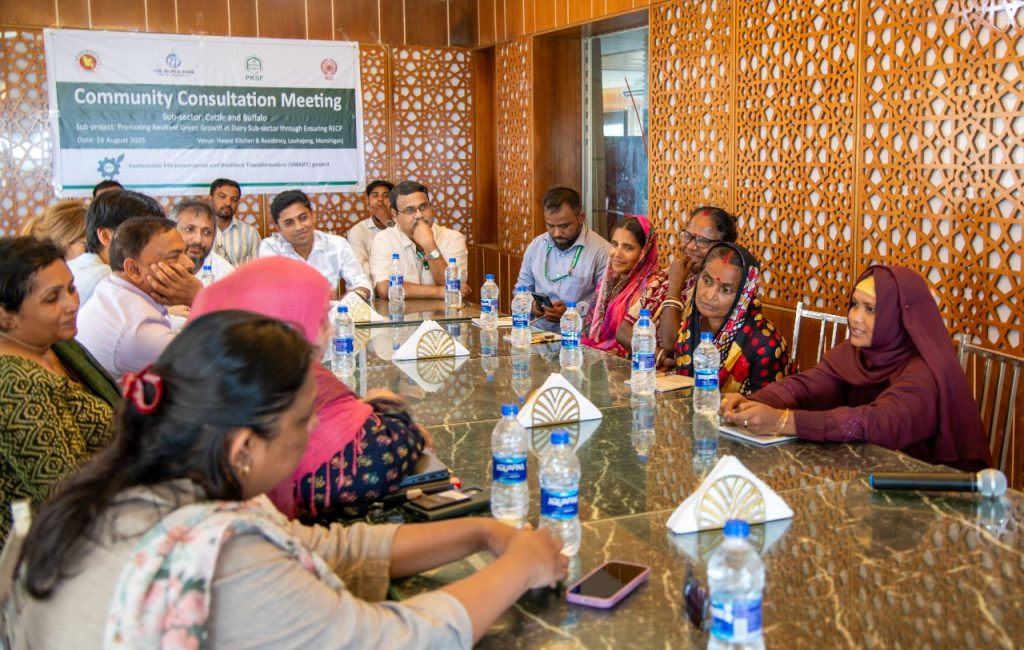
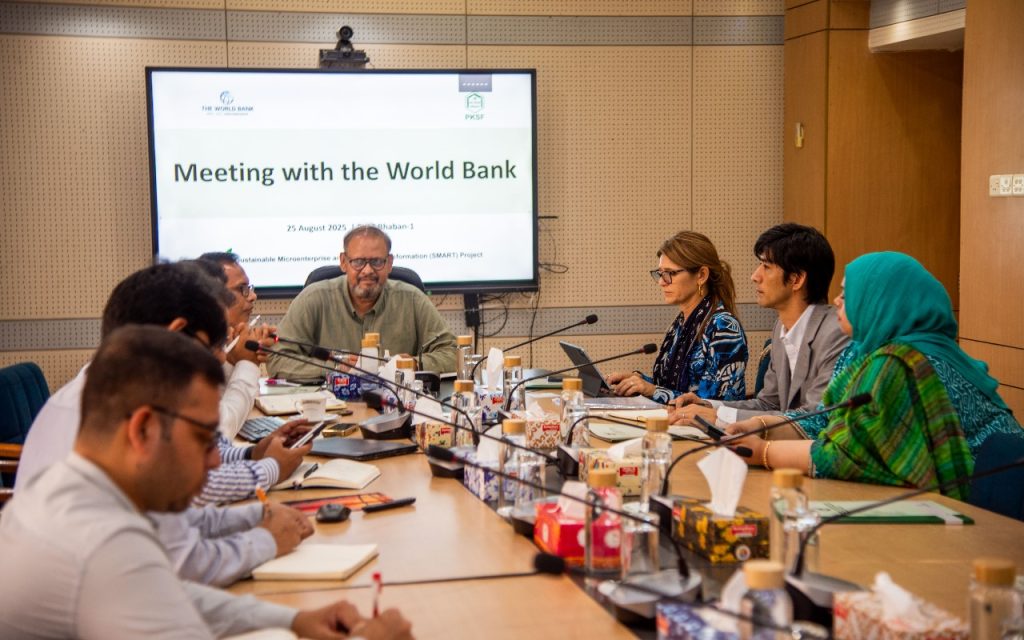
The day before the field visit, a courtesy meeting was held at PKSF with Ms Glauber, presided over by PKSF Deputy Managing Director Md Mashiar Rahman. He highlighted PKSF’s commitment to integrating RECP practices into its core programs and acknowledged the long-standing partnership with the World Bank. Ms Glauber, in turn, stressed the potential impact the SMART project can create through appropriate financing.
RIC, as a Partner Organizaiton of PKSF, is providing financial and technical support to the MEs in ‘Cattle and Buffalo’ sub-sector with a target of reaching 1,200 in Munshiganj district under one of the sub-projects of the SMART project. PKSF is implementing the SMART project across the country to support around 80,000 microenterprises in Agriculture, Manufacturing and Processing, and Service sectors within 2028. The main objective of the project is to increase resource-efficient and resilient green growth of microenterprises.



